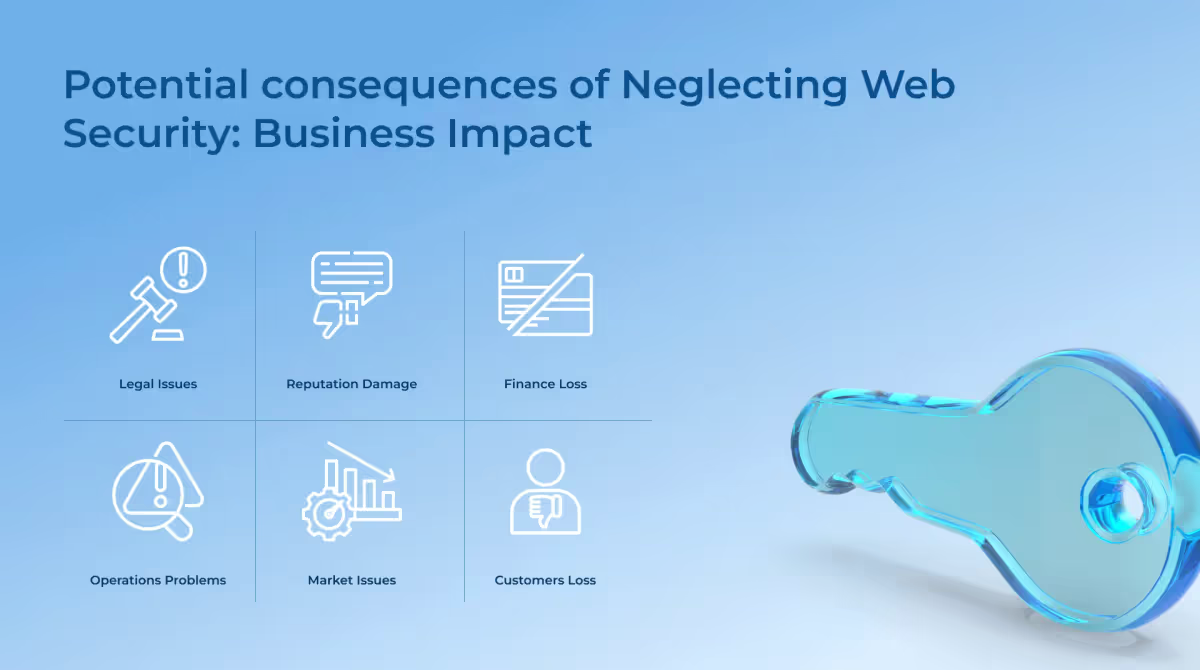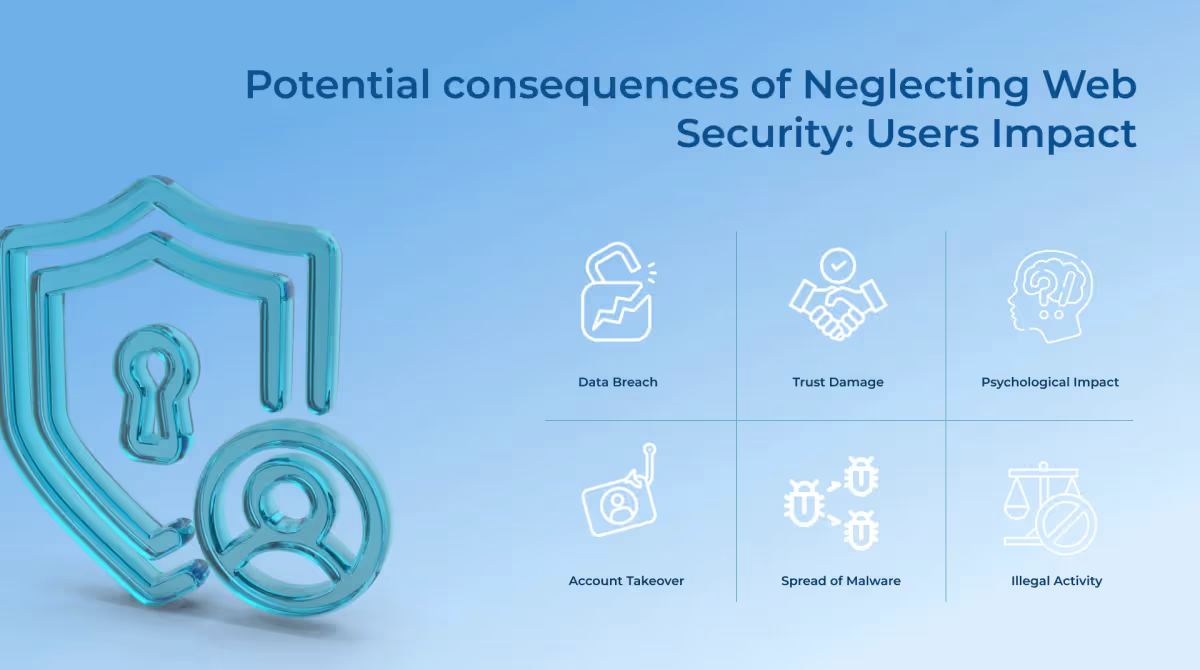The digital frontier is a double-edged sword. It offers infinite opportunities for creativity and growth but brings along an ever-changing and complicated threat landscape.
From startups to global enterprise organizations, industries rely on robust web applications to power growth and innovation. Meanwhile, this has created a very critical challenge: cybersecurity.
A staggering 43% of cyberattacks are against small and medium-sized businesses, while only 14% of them are prepared enough to defend themselves.
This underlines the requirement for a security-first approach toward web development.
In this blog post, we outline the critical role of securing every phase in the development lifecycle. A shifting threat landscape means evolving risks against which one needs to take preemptive action in guarding digital assets and building trust with customers on the way to long-term success.
Understanding the Importance of Security in Web Development
What is web development security?
Security in web development refers to laying down an overall framework within which the web application or sensitive information will be protected.
This includes measures taken to defend against unauthorized access, data breaches, and other malicious activities in the application. Security incorporated into the development lifecycle can help you build resilient and secure web applications designed to respond to ever-growing threats.
The Critical Need for Security in Modern Web Development
The fast pace of digitization in businesses has created a very conducive environment for cybercriminals. More and more data breaches, hacking, and malware attacks happen, leading to huge financial losses, reputational damage, and loss of customer trust, among others.
As such, it has become very vital to protect organizations in web development. Ensure proper investment in robust safeguards, guaranteeing the safety of valuable assets, maintenance of customer confidence, and consequently long-term sustainability.
Benefits of Strong Security in Web Development
Prioritizing web development security offers numerous advantages for your business. You protect sensitive data and, therefore, customer trust—and you comply with various data protection regulations like GDPR. A secure web application saves your business from financial losses due to fraud and theft and reduces downtime and its associated costs.
Moreover, strong security helps you stand against complex threats targeting your business continuity and competitive edge. When investing in security, you do more than just protect your assets; you're building the foundations for long-term success.
The Consequences of Neglecting Web Security
Business Impact

A security breach may spell doom for any business, regardless of its size. That simply places a very high price tag on its finance. The financial burden, from the direct incident response and legal fees to regulatory fines, as well as the long-term company valuation impact, can be overwhelming. Consider this: The average cost of a data breach was $4.45 million in 2023—a grim reminder of the financial stakes involved.
Apart from the financial loss involved, reputational damage is just as serious. This may mean the loss of customer trust in a breached organization and, consequently, a decrease in sales and market share. Indeed, up to a third of customers might stop doing business with the breached company. Operative downtime due to breaches is paralyzing; in the same breath, therefore, companies suffer lost revenues and productivity.
The other major issue could be the legal implications. The lack of proper care in the protection of personal data involves the risk of litigation and large regulatory fines. The €1.2 billion fine on Meta is a pointer that non-compliance is pretty serious.
Impact on Users

The consequences of the data breach extend beyond the organization as a whole. Huge risks are posed to users whose personal information has been compromised, which include identity theft, loss of money, huge serious psychic impacts, etc. If such data, like, say, medical or biometric information, is stolen, disastrous situations are brought along in some worst-case events.
Data breaches also diminish the level of trust between users and organizations. Personal information, if mishandled, will erode user confidence and make them increasingly wary of sharing data in the future. This has negative implications for the user experience and can prevent the evolution of innovative services based on data sharing.
It is clear that the effects of web neglect are wide-ranging. Protection of the bottom line of business and customers' interests alike must place security at the forefront of any organization.
The Fundamental Role of Security in Web Development
Security First in Web Development
Security shall not be added in as an afterthought in a web development project. In other words, security should be born at the very beginning. Security forms the bedrock on which a solid and reliable Web application can be built. Bringing security right from the start of a project inculcates it totally into the development culture, and that would go a long way toward making applications more secure and resilient.
Only by hardwiring security into the process will development teams recognize and fix potentially vulnerable leaks in due time. This comes in very handy and saves costs compared to spotting security problems with your product after its release.
Relationship between Secure Web Development and Overall Website Performance
Counterintuitively, enhancing security actually has the ability to improve the performance of your website. Security is entailed by a number of these factors that improve the performance of websites, like code optimization and effective encryption, to name only a few. A more secure website will also be off the air less frequently due to cyber-attack incidents, hence ensuring performance and availability.
Moreover, secure websites are favored by search engines themselves. For instance, HTTPS encryption can increase your search engine ranking. A secure website not only protects the user's data but also adds to the overall success of the application.
Web development integration with security is paramount to mitigating the risks and ensuring long-term success. Our strategies must change to protect digital assets and retain user trust in the face of emerging threats. In the next few posts, we will delve deeper into advanced security practices and some practical measures you can take to improve your web development approach in preparation for emerging challenges. Stay tuned to explore how to effectively secure your web applications.

